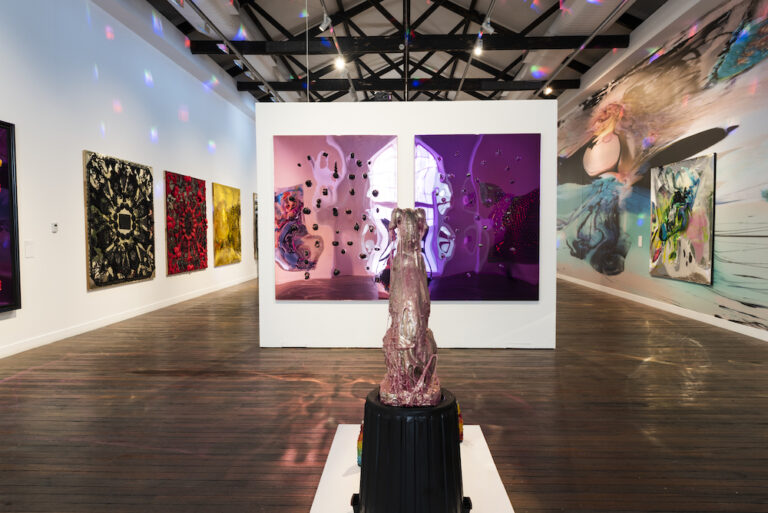

By Michael Hitch
While the Sydney Gay and Lesbian Mardi Gras may reign true to its reputation of bare chests and micro-plastic glitter – but can the same can be said for its reputation of inclusivity?
The Sydney Gay and Lesbian Mardi Gras (SLGMG) could be seeing another name-change after organisation members met in April, amid ongoing concerns of exclusivity from trans and gender-diverse community members.
In the weeks following the April meeting, community and online consultation was encouraged, with some members calling for a ‘Queer’ festival label, while others were left scratching their heads as to whether a ‘name-lift’ is really a step in the right direction.
On one hand, a name change could lead to an implied loss of heritage while also disrespecting the history of the original 1978 Mardi Gras protest.
On the other hand, the name needs to match the community.
On a third hand, some think that a name-change is meaningless as the marketing mayhem behind Mardi Gras has already ‘ruined’ the festival’s protest roots.
Mardi Gras Board co-chair, Giovanni Campolo-Arcidiaco, agreed that the current name excludes the many groups who make up the ever-growing community, but acknowledged the importance of its current title.
“Our current name does not mention many of the sexualities and gender identities that make up our communities,” he said. “We think it is time to investigate if and how we can more accurately represent our communities and people’s diversity, because words matter.
“There are decades of community history in the name ‘Sydney Gay and Lesbian Mardi Gras’; therefore, making a change to it is not something we would do lightly.
“The words ‘Gay’ and ‘Lesbian’ mean a great deal to many people and especially to those who fought for the visibility of Mardi Gras in the wider community. They were strong statements in a society that would avoid using them.
“On the other hand, our festival aims to include and represent many different sexualities and gender identities who want to be welcomed, seen and heard. Their experience about the use of representative or non-exclusionary words deserve attention too.”
Honouring the past and present
However, Campolo-Arcidiaco disagrees with those feeling that big businesses, such as ‘GAYNZ’ and ‘Absolut’, have ruined the SGLMG name.
“Our Mardi Gras continues to be both a celebration of our communities and a protest,” he said. “Activism is still a very important component of our Parade, and it can now be presented in new ways because society around us has changed.
“Our name needs to keep up with social evolution too, as it is vital for it to show who we are, who the festival is created by, and who we are here for.”
Barbarella Karpinski was a teenager when she marched in the first 1978 protest and shares Campolo-Arcidiaco’s ideas of ‘social evolution’, but also believes a name-change must be made to honour those in the past as well as the present.
“There’s lots of wrong that need to be righted,” she said. “They’ve had that name for too long. There are many people who have been excluded that were there in ‘78 and beyond; they need to be acknowledged. Sex workers, bisexuals, pansexuals, transgender people, gender-diverse people and kinky people – if brands can get a shout-out, then those people should too.”
Whether to change the name is only one side of the argument – the other side of this pride-coloured coin is what would it be renamed?
Karpinski cheekily suggests ‘The Kinky Fucking Queer Mardi Gras’.
The SGLMG has a chequered history of name changes, from the ‘Gay Mardi Gras’ in 1978 to the controversial ‘Sydney Mardi Gras’ change in 2011, which was later reversed to its original 1988 name, ‘Sydney Gay and Lesbian Mardi Gras’.
However, many, including Karpinski, are now wondering if the umbrella term of ‘Queer’ should carry the torch for future festivities, as the ‘Queer’ label still remains controversial due to its historical use as a slur.
Peter Murphy, an original 1978 protestor and member of the ‘78ers Collective’ said that while ‘queer’ encompasses the growing diversity of the community, he holds reservations as to whether the word has enough strength.
“Oh, I think that’s a long-gone problem,” he said. “Every decade or so things move on. As a 78er I’m open to the idea of changing the name, but it’s got to be a specific name change that works.
“We co-opted the word ‘queer’ back in the 70’s and made it part of our identity, so it’s not a problematic word as far as I’m concerned. Lots of other slurs have been co-opted – ‘poofter’, ‘dykes’ – all of these words were nasties at one point.
“I think at least ‘queer’ as a word these days captures the fluidity, sexuality and diversity of the community. The only problem is that it’s one word; perhaps it’s not a strong enough word for the job we’re asking it to do.”









